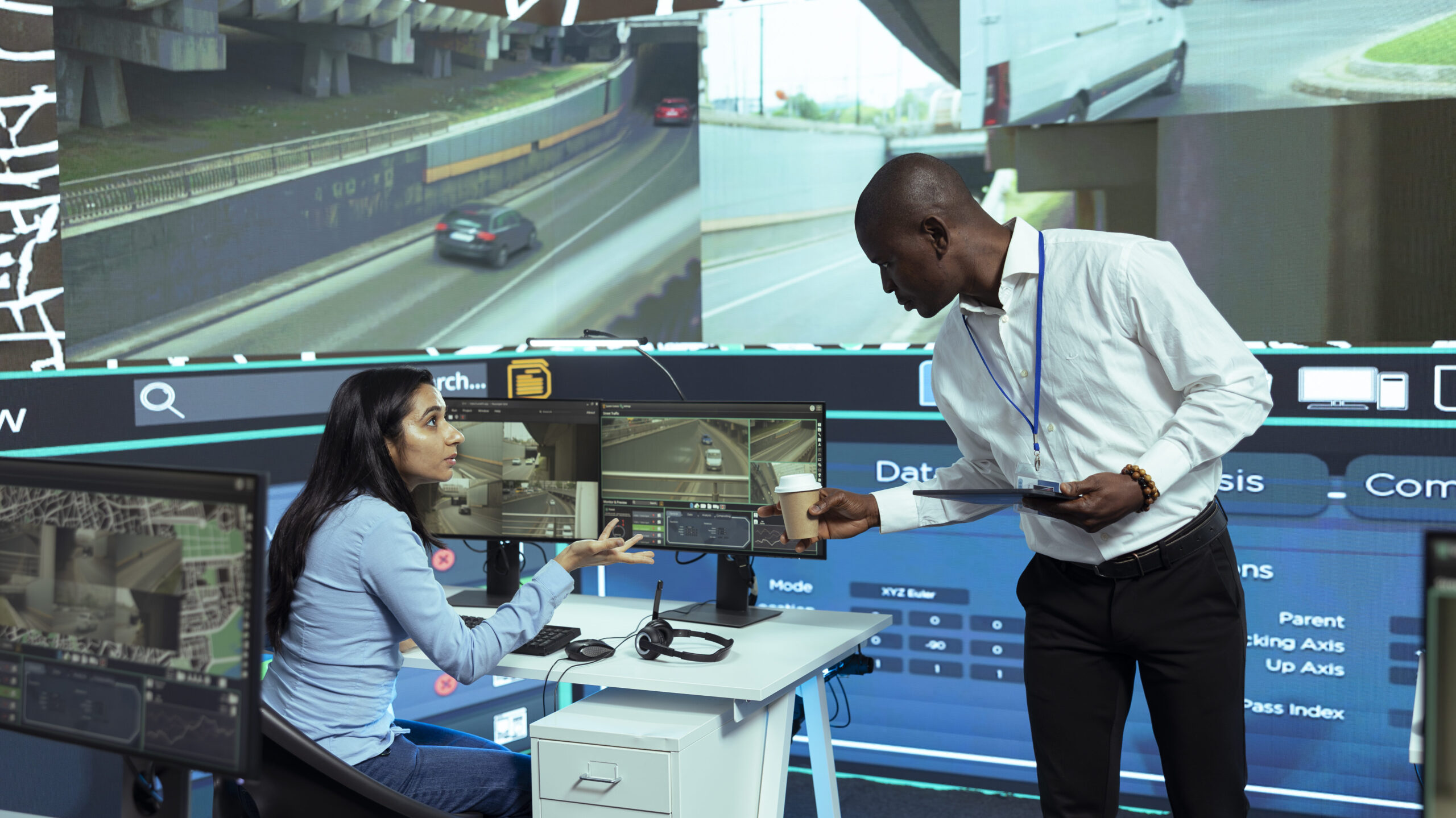How Logistics Technology Is Driving Innovation in Freight and Transportation
Dina Youssef

Logistics technology is reshaping the freight and transportation industry, empowering companies to enhance efficiency, reduce costs, and stay competitive in a global marketplace. As technology evolves, advancements like AI, automation, robotics, and additive manufacturing are transforming how goods are transported, stored, and delivered. These innovations are unlocking new opportunities for businesses to optimize operations and improve supply chain resilience.
Embracing AI to Optimize Freight Operations
Artificial Intelligence (AI) is becoming a cornerstone of logistics technology, enabling companies to solve complex challenges in freight transportation. From route optimization to dynamic pricing tools, AI-powered solutions offer unmatched efficiency. For example, AI can analyze vast datasets to identify the most cost-effective routes, reducing transit times and fuel consumption. Additionally, large language model-enabled AI tools can streamline communication between brokers and carriers, expediting processes and improving customer service.
AI applications extend beyond these operational benefits. Companies are leveraging AI to navigate trade compliance and tariffs or optimize the transportation of overdimensional freight. Logistics technology powered by AI enhances decision-making, providing actionable insights that improve productivity and drive growth across the industry.
Advancing Automation and Robotics in Logistics
Automation and robotics are revolutionizing the freight sector by addressing labor shortages and increasing operational precision. Automated warehouses, equipped with robotic systems, enable faster and more accurate handling of goods. This minimizes human error and reduces operational costs.
The adoption of robotics extends to manufacturing sectors vital to logistics, such as automotive and aerospace industries. By integrating robotics into supply chains, logistics providers can enhance efficiency and maintain a competitive edge in the global market. To remain leaders in the logistics technology race, stakeholders are urging the development of a national strategy to advance robotics and create a skilled workforce to support these innovations.
Additive Manufacturing: Redefining Supply Chain Management
Additive manufacturing, or 3D printing, is gaining traction as a transformative tool in logistics technology. This innovation simplifies the production of specialized parts, enabling quicker repairs and reducing dependency on overseas manufacturing. For example, ship-to-shore cranes at U.S. ports and other essential equipment can benefit from 3D-printed components, minimizing downtime and enhancing operational efficiency.
The maritime industry is particularly poised to leverage additive manufacturing, with applications ranging from submarine parts to critical ship systems. By investing in domestic 3D printing capabilities, the logistics sector can address supply chain vulnerabilities, enhance cybersecurity, and boost onshore production capabilities.
Boosting Innovation Through Policy Support
Policy changes can significantly influence the adoption and growth of logistics technology. Incentives to invest in AI, automation, and other advanced tools can fuel innovation and streamline freight operations. For instance, deregulation or targeted funding could encourage venture capital investments in freight technology startups, fostering a competitive and innovative ecosystem.
Automation, in particular, has the potential to mitigate job losses by creating specialized roles that require technical expertise. A strategic focus on upskilling the workforce to meet the demands of robotics and AI integration is essential for maintaining economic competitiveness.
Strengthening Domestic Supply Chains
The logistics industry is increasingly focusing on strengthening domestic supply chains to reduce reliance on foreign imports. Additive manufacturing plays a critical role in this strategy by enabling localized production of components previously sourced from overseas. By investing in logistics technology, the industry can address key supply chain challenges, improve operational resilience, and bolster national security.
For example, U.S. ports have started embracing 3D printing for maintenance and repair operations. The ability to produce parts on-demand ensures that equipment remains operational, reducing costly delays. This shift toward localized manufacturing also aligns with broader efforts to enhance economic independence and maintain a competitive edge.
Enhancing Freight Ecosystems with Data-Driven Insights
Data is the lifeblood of modern logistics technology. Advanced analytics and AI-driven insights enable companies to monitor supply chain performance in real time, identify bottlenecks, and implement proactive solutions. By leveraging logistics technology, businesses can optimize inventory management, forecast demand, and enhance customer satisfaction.
Cloud computing further strengthens these capabilities by providing scalable solutions for data storage and analysis. Logistics providers can integrate cloud-based platforms to streamline operations, enhance collaboration, and achieve better visibility across their supply chains.
Building a Sustainable Future with Logistics Technology
Sustainability is another area where logistics technology is making a significant impact. Innovations like AI-driven route optimization and energy-efficient automation systems contribute to reduced carbon emissions. Companies are also exploring alternative energy sources and green logistics practices to minimize environmental footprints.
By prioritizing sustainability, the logistics industry not only meets regulatory requirements but also responds to consumer demand for environmentally conscious practices. This commitment to green logistics positions companies as leaders in an increasingly competitive marketplace.
The Road Ahead for Logistics Technology
As the logistics industry evolves, the integration of cutting-edge technologies will continue to redefine freight transportation. AI, automation, additive manufacturing, and data-driven solutions are transforming every aspect of the supply chain, from warehousing to last-mile delivery. By investing in these advancements, logistics providers can enhance efficiency, reduce costs, and create a more resilient and competitive industry.
The future of logistics technology is bright, and businesses that embrace these innovations will be well-positioned to succeed in a dynamic global economy. With continued investment, policy support, and a focus on sustainability, the logistics sector can achieve new heights of efficiency and innovation.
To learn more about how Stellar Logistix is driving innovation in the freight industry, visit our website at Stellar Logistix. You can also find us on Google to connect and explore our services . We look forward to being your trusted partner in advancing logistics technology.